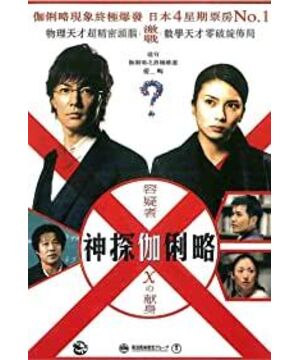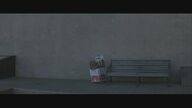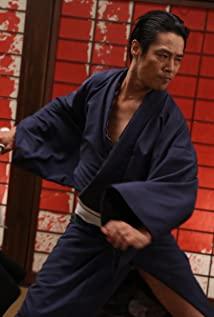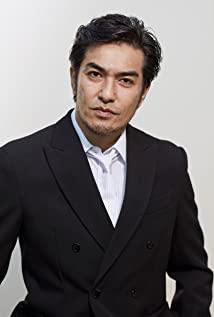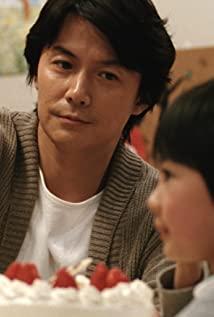It is impossible for you and me to get rid of the shackles of the clock, and each other has been reduced to the cogs of the clock of society.
Keigo Higashino's novels seem to be fascinating suspenseful reasoning, but in fact they are all about social issues. It's like Shishen's trick to the police: it seems to be a geometric problem, but it is actually a functional problem.
Stone God Suicide: Personal and Social Alienation
"The Devotion of Suspect X" by Keigo Higashino. The context of the story is that the heroine of the story, Yasuoka Hanaoka, accidentally killed her ex-husband, a neighbor of Yasuoka, a math genius named Tetsuya Shishen, in order to exonerate Yasuoka Hanaoka, he stole the beam and replaced the pillar, and gave it to the police at the price of killing a homeless man. There was a problem of connecting flowers and trees, making the police mistakenly think that the murderer was Shishen. ?
So what is the reason for the dedication of the stone god? It's because Ishigami fell in love with Yasuko Hanaoka. So what is it that makes a person love someone so much that he does not hesitate to commit his own crimes to exonerate others? It was because at the moment Shishen committed suicide, Huagang Jingzi and her daughter, who had just moved next door to Shishen, knocked on the door to introduce themselves to Shishen. The moment Shishen saw the eyes of the mother and daughter, the thought of suicide disappeared, and he was rescued from the thought of dying. The text says: "How can there be a mother and daughter with such beautiful eyes? Before that, he had never been attracted or moved by the beauty of anything, nor did he understand the meaning of art. However, at this moment, he understood everything. He found that this was essentially the same thing as solving the beauty of mathematics.
The original source of the story is actually the suicide of the stone god.
Shishen Zhezai, a math genius, has no choice but to become a middle school math teacher. He is nearly middle-aged, alone, the students don't like or understand him, he has no friends, and he is sloppy.
The French sociologist Durkheim believes that suicide is not just an apparent personal behavior, but is closely related to the degree of social integration. Yan Fei said in "Thinking Like a Sociologist": In Japanese, "people" is also called "human world", which accurately expresses a true meaning of sociology, that is, the meaning of people lies in "people". between people" rather than an isolated existence.
And the ghost-like stone god feels that no one in the world appreciates him, no one hates him, no one likes him, no one needs him, and he is an indifferent existence. : "Anyway, when I die, no one will be sad or troubled." In his consciousness, no one will pay attention to everything about him, including death. In a word, he became an island in society. So, he wanted to die. Get out of loneliness.
To quote a sociological concept: egoistic suicide.
The so-called "self-interested suicide" means that when the connection between people and society and between people and communities becomes more and more slack, people will "selfishly" consider themselves. It's better to make yourself comfortable and choose suicide. "Self-interested suicide" mainly occurs in groups that are not well socially integrated and have a low collective consciousness, that is, "personal and social alienation". Stone God is probably like that.
The Homeless: A Neglected Group
A key link in Shishen's "dedication" plan is the unnamed tramp that Shishen treats as part of a puzzle. That is, those homeless people who gather on the Sumida River.
The reason why Stone God chose to kill a vagabond who he called a "technician" to implement his tricks. It is because of the characteristics of these homeless people: "In this world, even if some people disappear suddenly, no one will look for him, no one will worry about him, and no one will report the case."
One of the homeless people who collected empty cans told Yukawa that in their world, they had long been accustomed to the sudden disappearance of someone one day.
In fact, the tragic characters mentioned in the novel: the unemployed vagabond, the escort Yasuoka, the bankrupt and dead former husband of Yasuko, including the underappreciated Shishen, are all social groups marginalized by society.
"Today we don't have too many class antagonisms, but social stratification still exists. And with the development of economy and technology, social stratification may become more and more obvious."
We have to admit: in today's secular world, "the amount of economic resources, political organization resources and cultural resources determines people's comprehensive socio-economic status and determines the social evaluation of a person by others."
In the book Think Like a Sociologist, a concept emerges: class space.
The author Yan Fei borrowed the science fiction novel "Beijing Folding" to illustrate the concept of class space: Although people live in the same city, people in different spaces have strict and almost insurmountable divisions and barriers, as if living in different physical spaces.
In the novel, the homeless, an important part of the overall narrative, probably belongs to the third space mentioned in "Beijing Folding": the working people at the bottom. There is no opportunity to achieve the mobility of classes, and they have been on the fringes of society for a long time and have been ignored by people. This is probably an important reason for being chosen as the prey by the Stone God.
The Mechanized Alienated Society: We Are All Cogs in the Machine
The stone god in the novel sees the homeless people whose lives are almost repeated every day: this scene remains the same, for a month, nothing has changed, and they live as accurate as a clock.
Yukawa agrees: neither you nor I can get rid of the shackles of the clock, and each other has been reduced to the cogs of the clock of society. Even if he desires to act recklessly, his surroundings will not allow it. Although we have gained stability, it is an indisputable fact that we have lost our freedom.
Both Ishigami and Yukawa saw a mechanized alienated society.
I am woken up by the alarm clock at 6:30 every morning, wash up, drink a glass of water, carry my bag, listen to a few familiar songs or podcasts I often listen to, go out, take the bus around 7:20 at the same location, and go out at the same location. I can always see the faces of a few familiar strangers in the car. I got off the car at around 7:30, and the sprinkler car playing "Orchid Grass" swaggered past me. I was often splashed with muddy water and went underground Passing through several grocery stores that seem to have remained unchanged for thousands of years, a middle-aged woman often cooks vegetables in an iron pot at the door. She arrives at the unit at around 7:40, and orders a few meals that she eats almost every day. Chewed repeatedly, sitting in front of my desk in the office around 7:50, in a daze, turning on the computer, thinking about how to start repeating yesterday’s story today.
When I read the unchanging scene that Shishen saw on the way to work, I would unconsciously say, why am I not this trance-like Shishen? We are all in this mechanized alienated society.
Yan Fei, who studies sociology, explained the mechanized alienated society in this way: in our day-to-day work, we gradually lost our enthusiasm and ideals and became a link in a complex organizational system, a small screw in a big machine, It is nothing more than that with the accumulation of experience and the promotion of positions, the small screw has become a big screw, but it is still a small screw. Doing a lot of meaningless work mechanically and repetitively every day, thus losing more and more of the self, losing the subjectivity and creativity of the self.
It's just a rational dilemma in modern society, a highly rationalized society, we have lost our self and soul more or less.
Just like the stone god, over time, people feel that gears are useless and life is nothing.
Nietzsche's Thoughts: Life is void of life and health
In the novel, although Ishigami and Yukawa agree: each of us has become a cog in the machine.
But there is one difference between the two. Yuchuan felt that these gears repeated all day are useless and life is nothing, so he chose to kill a "useless" vagabond and make him an important part of his plan. Even himself is a screw in his entire plan.
Although Yukawa saw through the boring life of gears, he insisted: "There are no useless gears in this world, only the gears themselves can determine their use.
In fact, this is very similar to Nietzsche's point of view. Life is nothing. Life is strong.
Nietzsche said: "God is dead", the edifice of belief has completely collapsed, life has no meaning, and the truth of the human spiritual condition is nothing.
But Nietzsche also believes that in the face of a meaningless world and a meaningless life, people should be based on reality, face the meaningless absurdity, and create value in life activities with a strong instinctive dance of life. That is positive nihilism.
And Shishen moved towards negative nihilism: facing the truth of nothingness, falling into pessimism and despair.
Liu Qing said in Lecture Notes on Western Modern Thought: "Nietzsche's nihilism is bad news and good news at the same time. The bad news is that life is nothing. But it is also good news, because the truth of nothingness remains. Out of the most free space. We can face it positively and use the power of life itself to create the meaning of our own life. To be able to do this is what Nietzsche called superman.
View more about Suspect X reviews


